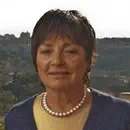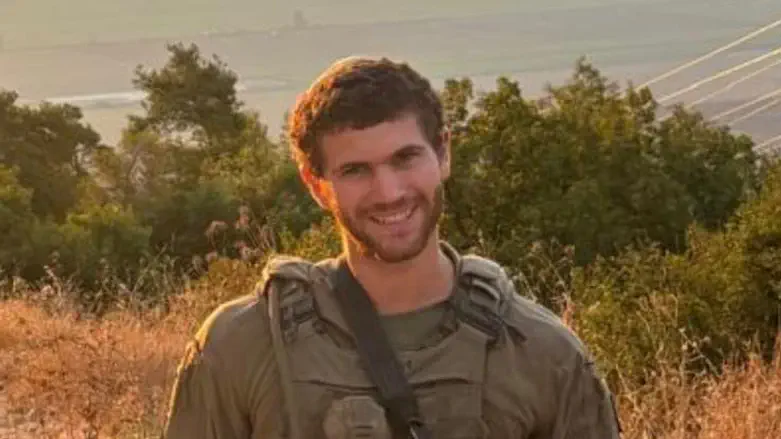
The dreaded knock at the door found the entire Wieder family, except for two combat soldier sons at the front, enjoying the first night of the Sukkot holiday in their sukkah.
Golani Brigade Commando Staff Sgt. Elyashiv Eitan Wieder, Hy”d, who celebrated his 22rd birthday just a week earlier, had been felled by a Hezbollah terrorist’s bullet during a courageous mission in Lebanon.
Elyashiv was a symbol of how the love for the land of Israel and its people passes from generation to generation, and sadly, of the price that such limitless love demands. He fell on the 14th of Tishrei, 2024, a day after the memorial service for his grandfather Chaim Tzvi Hy”d, who fell at the Suez Canal in the Yom Kippur War on the 13th of Tishrei, 1973, aged 35.
Grandfather and grandson gave their lives for Israel, fifty one years - and one day - apart.
Grandfather and grandson, heroes of Israel, are both buried in military cemeteries, one at the Mount of Olives and the other at the Mount Herzl Military Cemetery in Jerusalem.
Chaim Tzvi Wieder Hy”d was expelled from his chemical engineering studies in Romania when the authorities discovered he had applied for aliya. He earned his chemical engineering degree at the Technion in Haifa instead. Always finding time to learn Torah every day, he went on to earn a masters degree in physical chemistry, marry and build a G-d fearing home. His doctoral proposal had just been approved when he was called up for reserve duty at the Suez Canal in September 1973. On leave for Rosh Hashanah, he told his brother that he felt war was imminent, but nevertheless, returned to the front. The Yom Kippur War broke out on October 7, and after three days of his squad’s fighting Egyptian forces without the arrival of backup, he was killed, leaving a young wife, Sara, and four children.
“Why didn’t my father ask to be exempted?” his son Moti asked in a speech at the 2023 memorial for those from his father’s unit who fell in that war. “After all, he had four children under the age of six, including a newborn. I think the answer is love. He loved his country, his people and his family and like all the other soldiers who left their jobs and families, felt it was his duty to protect them. My father felt he was privileged to serve in the Israeli Armed Forces.”
As did his grandson, Elyashiv Eitan, Hy”d, quiet and reserved in nature but a lion in battle, raised on those stories and on love of Torah, the land, and its people.
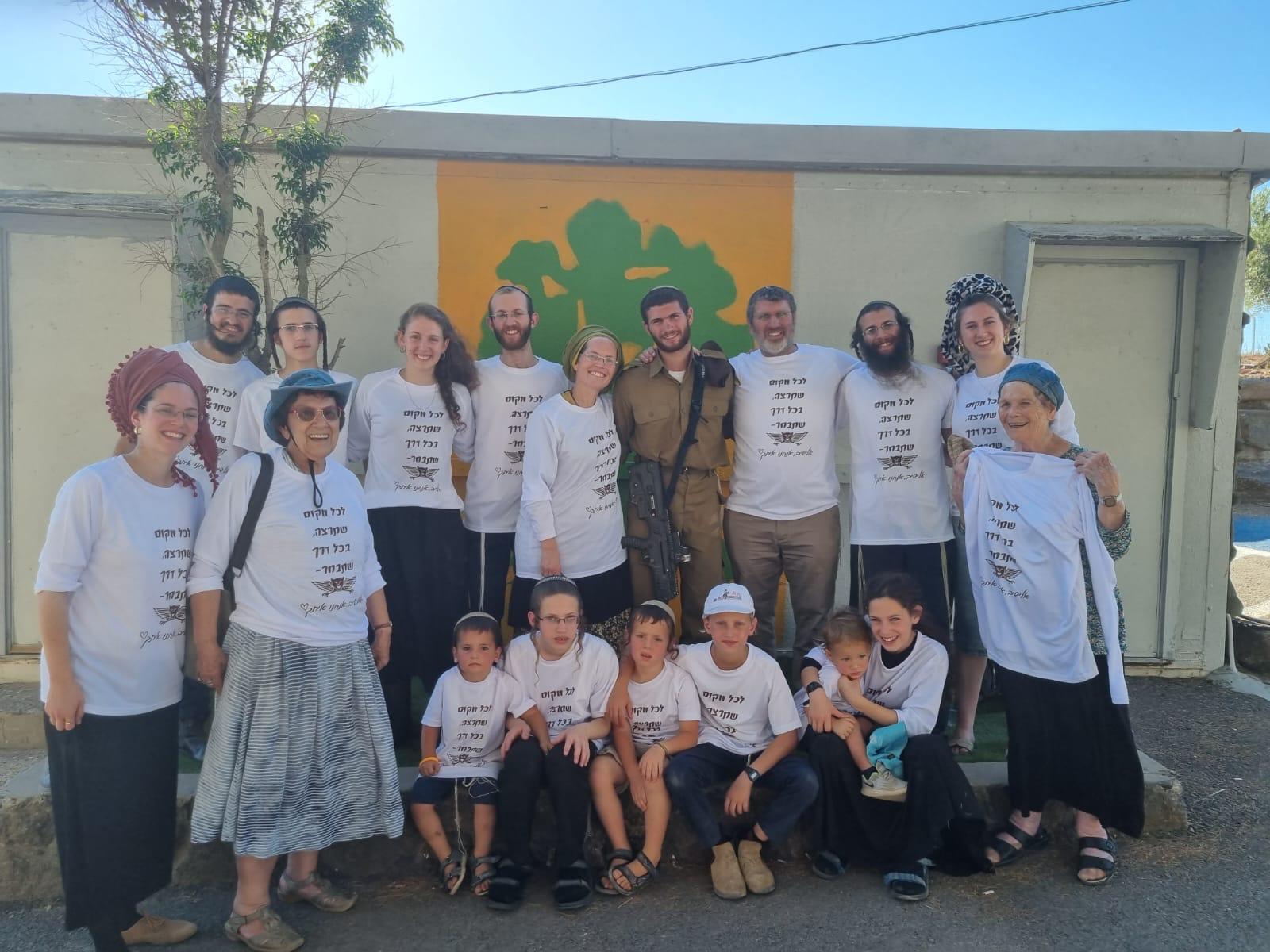
Moti and Yael Wieder, he a data systems analyst and she an educator, are the parents of ten children of whom Elyashiv was the fifth. “We gave our son the name Elyashiv, which means ‘G-d will let us return’, because he was born on the 7th of Tishrei, the month of Teshuva,” Moti says sadly, “and he returned his soul to G-d in that same month of Tishrei, on the same date as his brit.”
Two sayings served as guideposts for Elyashiv:
The first:Say little and do much (Ethics of the Fathers)
“Elyashiv was an easygoing baby who didn’t demand much attention,” says Yael, her voice breaking, ”and he grew up to be reserved, not an attention seeker, just a doer with a rich inner spiritual life who also had lots of good friends. What motivated him was a strong will to do what needs to be done – whether it was what G-d wanted of him, or what his commanders expected of him. He never lost his cool and that helped others cope with tension."
“He was slim, but very strong and the one to rely on in difficult situations. At the same time, he also had a sense of humor, loved rappelling, photographing Israel’s vistas, and playing his recorder – playing it even on army treks when others could barely catch their breath. For a while, in-between combat operations, he and a friend in another troop carrier made music together on the same radio frequency - until one day the army needed to use it!”
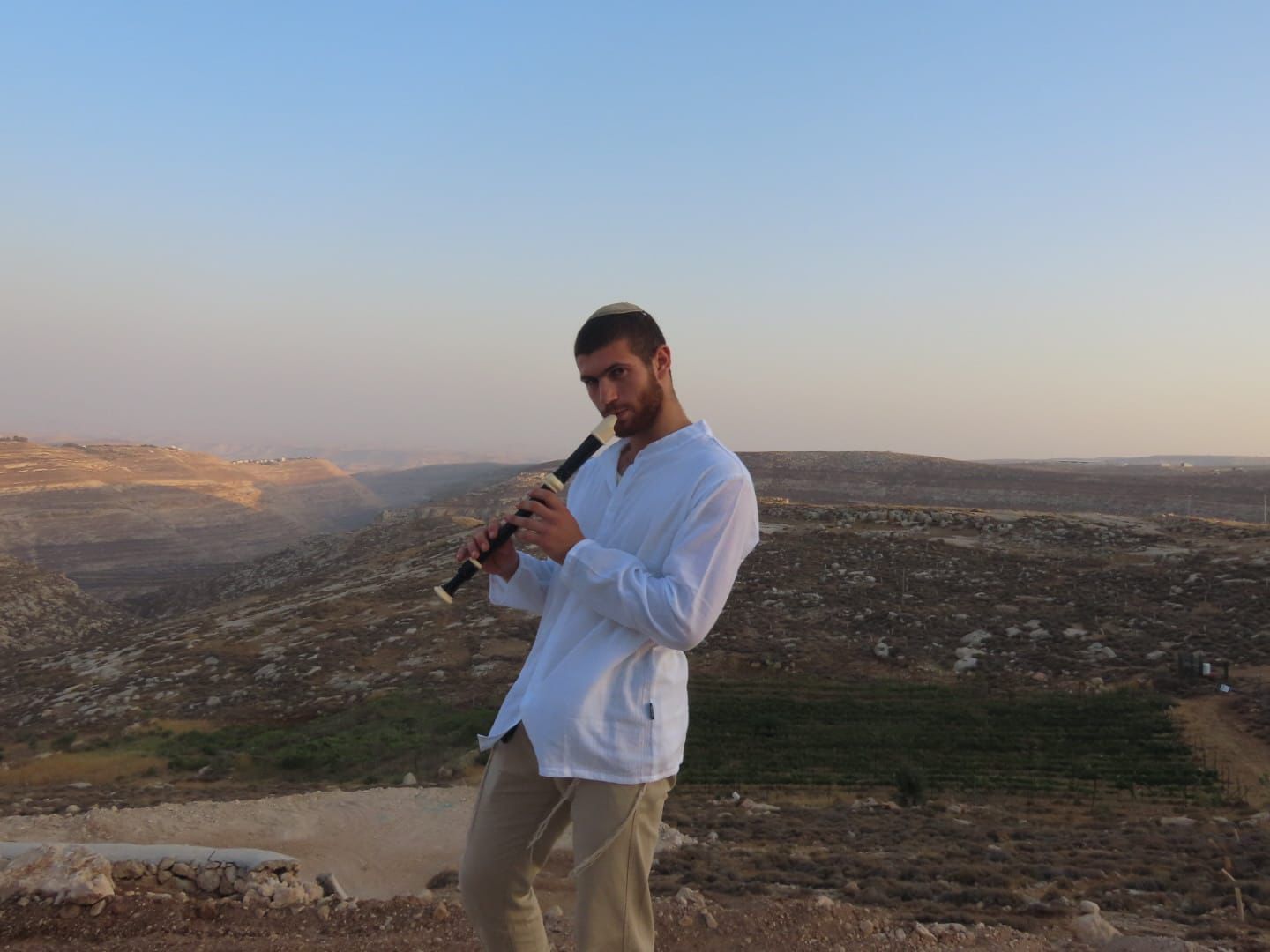
Elyashiv never boasted about his achievements. In fact, his parents first knew of the awards for merit he received in the IDF after he fell, when they were found under his clothes on a shelf in his room along with the notebooks he had filled, expressing his hopes to become a better person, to serve G-d better. They discovered that he had been allowed to learn two specialties in the IDF, although the rule is just one. Even the license he had taken out to ride a motorbike using his own money for lessons, came by mail after his death and was a surprise to them.
Very careful of his words even as a youngster, he refused to say a bad word about anyone. He did not participate in the soldiers’ let-it-all-out sessions where each soldier revealed what bothered him about the others, because he felt that no good would come of the negative feelings the activity aroused. He just couldn’t do it.
And another thing he could not bring himself to do was in the Krav Maga course where, although he excelled at everything else, he could not bring himself to punch those studying with him. Fittingly, the Morasha elementary school he attended held a week dedicated to “guarding your tongue” in his memory.
Elyashiv’s last ‘vort’, said at the Purim meal in yeshiva was a window into his soul. Rabbi Kastiel sent the clip to his parents, where he is saying: When we pray, we say “yihyu leratson imrei pi,” meaning ”May my words find favor [in G-d’s eyes]”, but ratson also means “will.” So perhaps we are praying: “May the words I say reflect my will and become my will.”
Many, many stories were revealed about this brave, sweet – yet tenacious - and warmhearted soldier during the shiva week, most by friends and commanders who came to console the family and themselves, feeling a need to share their memories of the outstanding commando squad officer who never got into an argument with anyone:
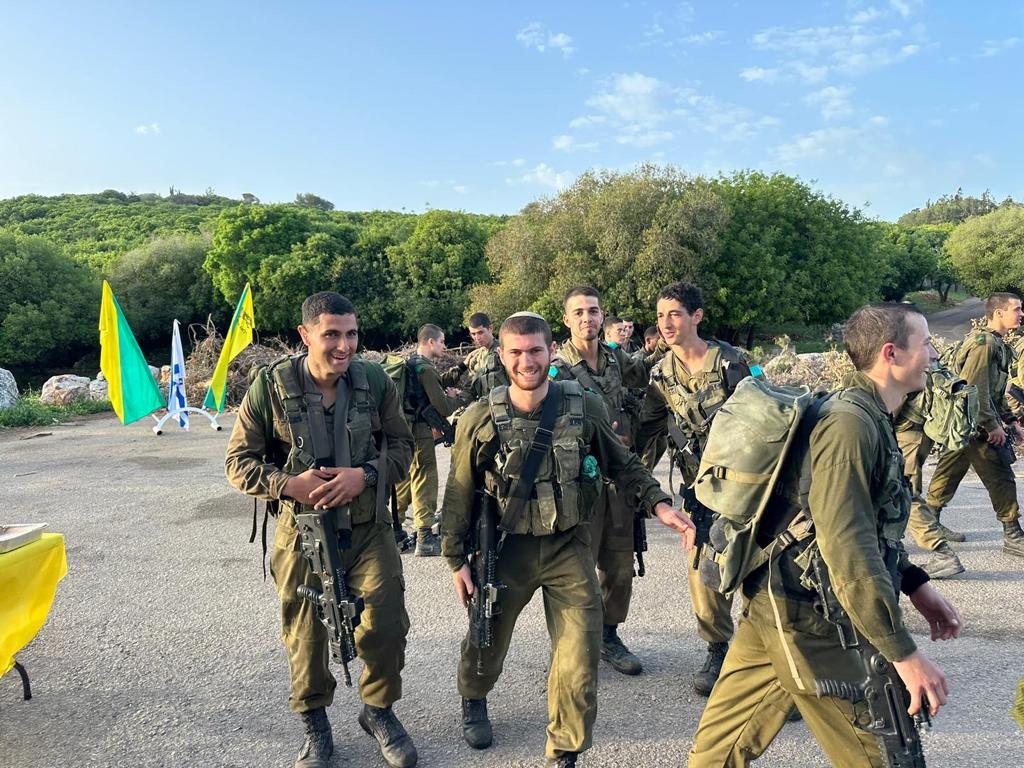
-Before the IDF operation in Lebanon, teams of special force soldiers would cross the border in the dead of night to destroy arms caches and stealthily return. Elyashiv took part in those highly dangerous missions, but did not tell his parents to spare them worry. They heard about it from the Brigade Commander who visited them during the shiva.
-Elyashiv, although the squad commander, was the one who uncomplainingly carried the heavy jerrycans of water, who also carried the bags of trash and made sure no litter was left behind by his men.
-The higher echelon Golani commanders fought to have him in their group, because he was courageous, never lost his cool and was always first to volunteer. It reached the point where a commander asked for a volunteer by saying: 'Who’s going first besides Wieder?' Or -'Is there anyone else besides Wieder willing to volunteer?' A new commander arrived when everyone was totally exhausted and asked that someone show him the ropes. Elyashiv volunteered and did so till the early hours of the morning. “That’s how he was at home too,”adds his mother, “within minutes of his arrival, a sink full of dishes would simply disappear.”
-And he got the job done. During the start of the war, he served in Gaza and his squad’s “Namer” troop carrier needed its tread reinstalled. Four of them worked together on it, finally gave up and three went to get a new one. Elyashiv stayed behind, kept trying, and did it by himself. It was like the time he and another soldier carried a soldier on a stretcher together while on a trek, until the other soldier said he was collapsing and could not go on. Since no one came to replace him – Elyashiv carried both poles of the stretcher himself.
-It was Elyashiv, his friends told, who while strolling with them on a Shabbat in Moshav Gitit, ran to save a cat whose head was stuck in a plastic bag - and not two minutes later, ran to pick up a crying child who had fallen. “We came to Gitit so you could save the world,” his friends said to him, half joking, half in awe. "He simply couldn’t see anything bad happen without running to help," they remembered.
And then there was the two-week army trek during which they passed a cotton field. Elyashiv picked a sprig of cotton buds for his mother, telling his friends she would love it, and that he used to gather pinecones for her when he was small. Later, when a friend’s family member picked them up at the end of the route, he discarded the branch so as not to dirty the car. On the way from Lebanon, granted leave to make a shiva call, a fellow soldier whose family had a cotton field went to pick a branch so he could give it to Yael, telling her that it is what Elyashiv had wanted for her. “These are our soldiers,” says Moti, “one of them thinks of his mother’s love of nature on a back-breaking trek and another leaves the battlefield to console her on her son's death, but remembers to bring her the gift he had planned for her.”
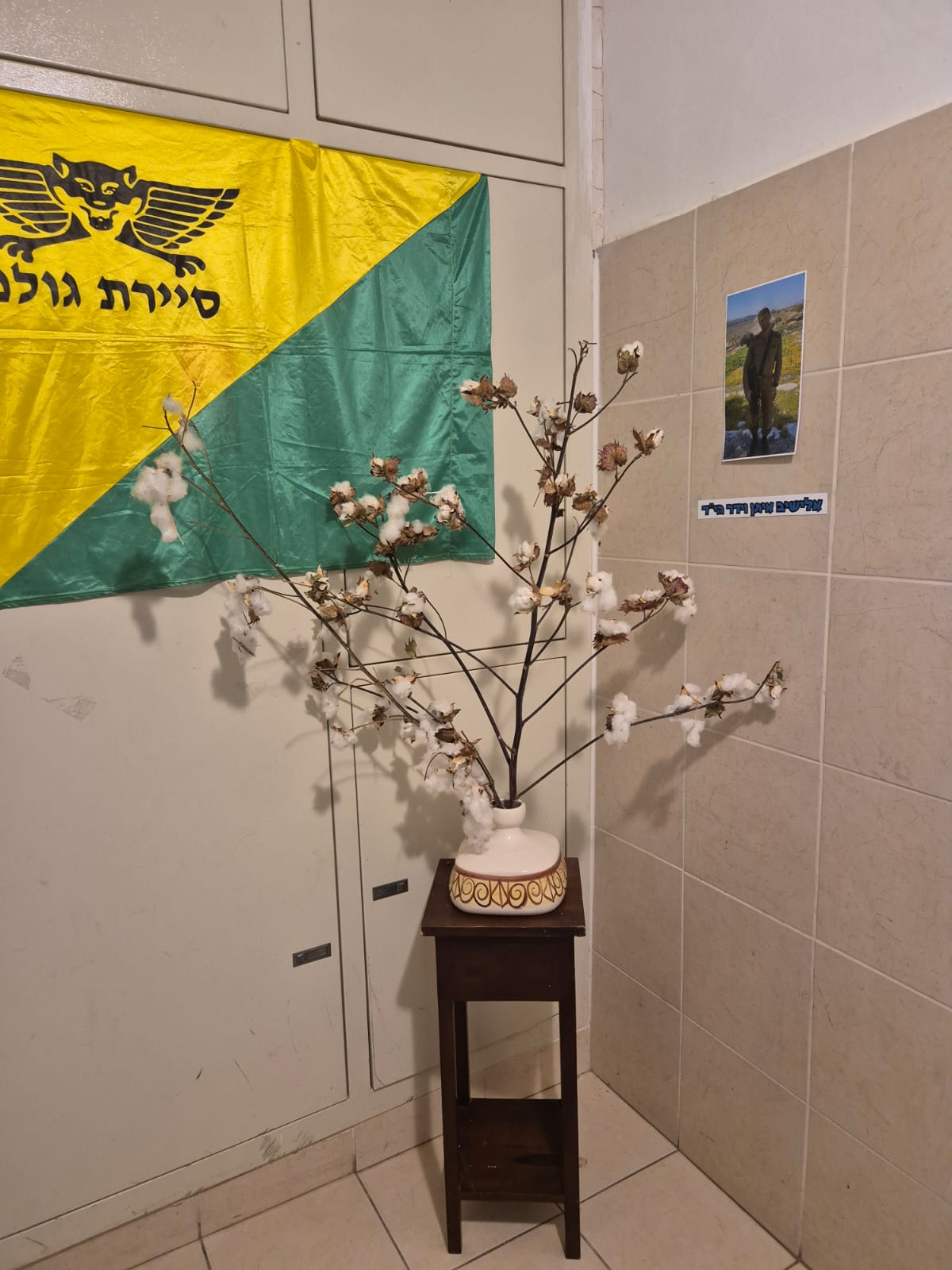
Elyashiv’s had a second guidepost, and it was: You can be a soldier, a commando and a yerei shamayim (G-d fearing Jew)– all three.
-Elyashiv attended Morasha Torani elementary school in Kiryat Moshe, Jerusalem, went on to Yeshiva High School in Nave, continued learning Torah at the Eli Yeshiva Gvoha, then decided to do regular army service after much deliberation on how he would balance kodesh and chol, holy and secular. And he did.
Somehow, in the grueling Golani commando unit training and the war that followed it, he found time to daven and learn every day, even in impossible situations. He carried Mesilat Yesharim and Orot (by Rav Kook) with him.
-On Rosh Hashanah 2024, the squad was not allowed to make noise due to their dangerous location, and stayed on alert in a darkened building. Elyashiv had obtained a shofar, but did not dare blow it, yet took out a machzor and davened by the tiny light left burning in the room. Standing alone, he simply spoke to G-d.
-While most of his group was not observant, they all recognized his uniqueness, calling him a holy, pure man, and were careful of their behavior in his presence. One soldier put himself in charge of warning the others to watch their language if he was there. Traditionally, at the end of a long trek during training, parents come laden with food and set tables filled with delicacies. They recalled how he would go off to put on his tefillin before joining them at the table and was careful to check the kashrut of everything he ate.
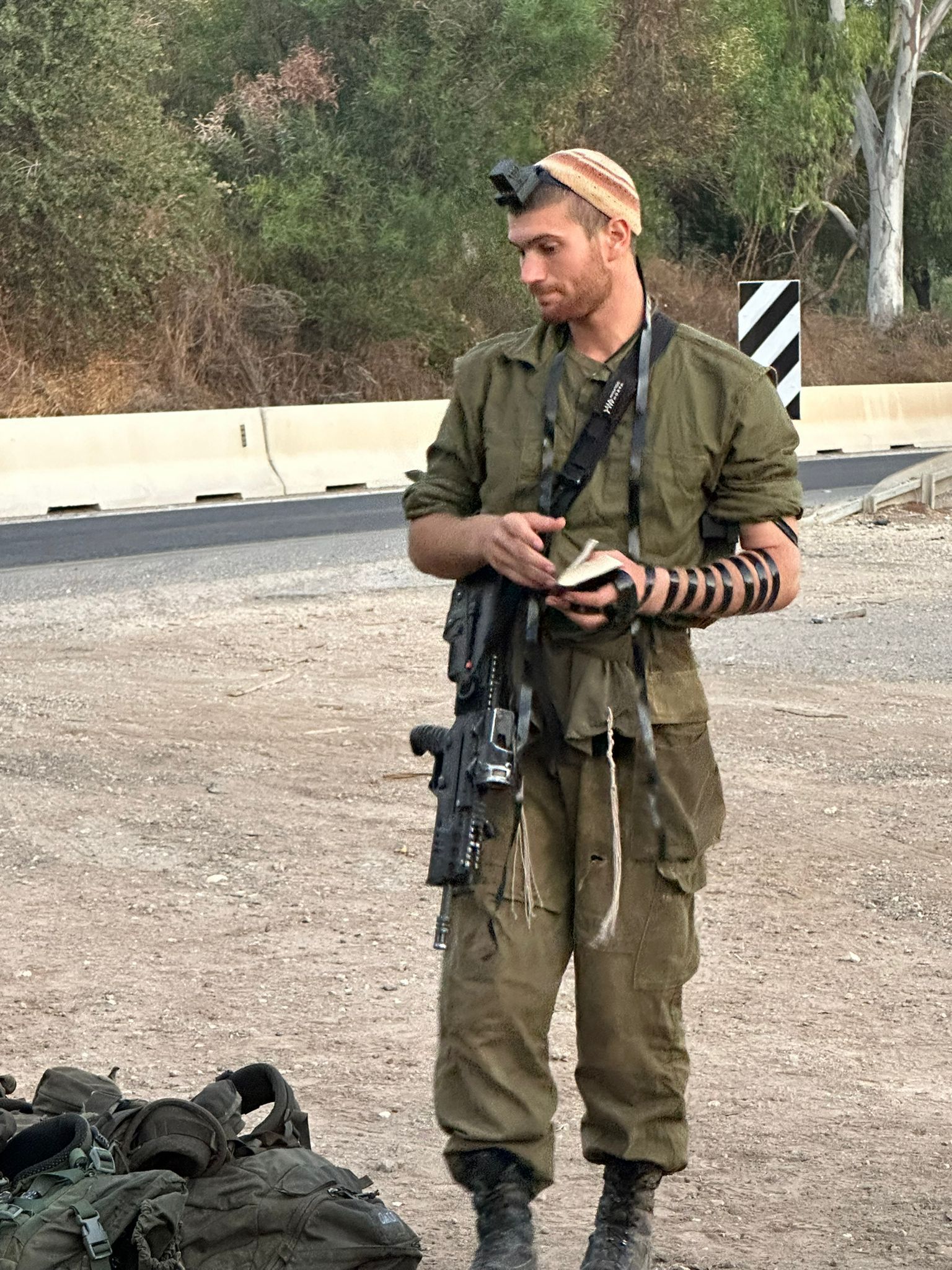
-A mother related how after a two-week outdoor training exercise in navigational skills, Elyashiv’s squad, totally exhausted, ended up in the north near her house, and her son invited them in. The soldiers slept in the family car, however, as it was the middle of the night and they didn’t want to awaken the household. In the morning, she invited them in to shower and eat, this after two weeks without showering or a decent meal. And then she noticed Elyashiv, not waiting his turn, but in another room putting on his tefillin. It touched her heart, she said, she felt an inner trembling. “A great light emanated from that room,” she said and her daughter, an artist, drew a portrait of Elyashiv then and there.
- Once, carrying his heavy packback, Elyashiv exited the bus near his home and instead of a well-earned rest, rushed straight to the nearby yeshiva so as not to miss a shiur he knew was taking place, not realizing his face was still full of the mud that had camouflaged him while in Lebanon. He quickly splashed some water over his face at the yeshiva when apprised of the fact by his father - and ran into the Beit Midrash…
--------------------------------------------------------------------------------------------
It was a two-storey building in a Lebanon village that had to be taken over as it was on high ground. The first floor was gone through with a D9, a drone was sent in to describe the inside, but before the company entered the building the commander (who had asked for Elyashiv although he belonged with a different squad) decided to check it out himself, choosing Elyashiv to accompany him inside. Suddenly three terrorists emerged firing from a loft that had not been detected, killing the commander, Ofek Bachar of Nes Tziona, instantly and wounding Elyashiv, who managed to get down the stairs and keep shooting until he, too, was felled by a bullet.
Five Golani commandos were killed in that encounter, one of the worst incidents of the war, and 5 were wounded (3 of them severely), but 40 soldiers’ lives were saved by the intrepid decision to check the building again. All the families, as is the norm in Israel, are in contact with one another.
It says a great deal about the Wieder family to know that they chose to go to vatikin (the service held at dawn) the morning following that fateful knock at their door, since the service has no socializing afterwards. This enabled them to refrain from ruining other people’s holiday by not telling anyone what had occurred until after reciting Havdalah. Throughout the rest of the holiday, people came to visit and the family remained at home, but shiva did not begin until a week later, when the holiday ended, as halakha prescribes.
Moti, Elyashiv’s father, was less than two months old when his father, Chaim, was killed. His mother Sara made a conscious decision to keep their home a happy one – and did so despite the never-ending pain of Chaim’s loss, facing the future with optimism and raising four children who grew up to build thriving families and careers of their own, as well as making her own mark in her chosen field of history.
Moti and Yael Wieder, too, have celebrated a son's wedding, to which they invited Elyashiv's squad, and another son's bar mitzva since the loss of their beloved son. May the Almighty bless them with much nachat from their wonderful family and the strength to cope with the loss of their precious Elyashiv, may his memory be blessed.
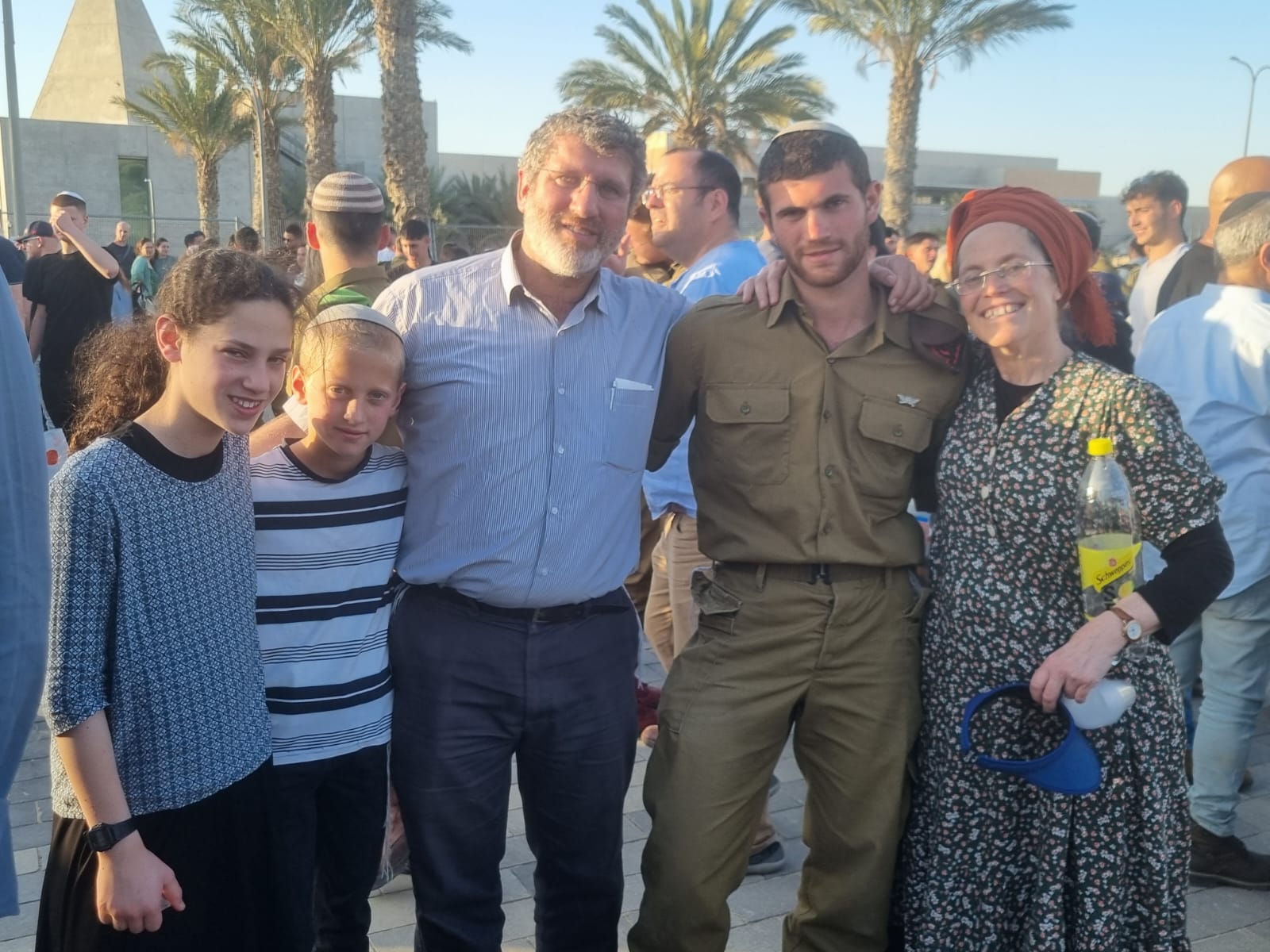
Addendum:
Shortly after Sukkot, the Harvest holiday, Elyashiv’s friends and family lovingly gathered the heavy harvest of his life story in a film narrated by friends and family, that brings the depth and uniqueness of Elyashiv’s spirit to life.
The film is divided into different aspects of Elyashiv’s character. We have emphasized the headings and translated parts of each section for those who do not understand Hebrew. Some of it will be easy to understand because the stories appear in the article.
https://drive.google.com/file/d/1eiXKLZfwQU0uTcZFJFP3CPipbm7yvy1z/view
0.01-0.44 Narrator: For he who was sacrificed in a flame For the son bound on branch and fire For he who ascended on high and is a fiery angel…
Song: 12th century Sephardic piyyut “Et Shaarei Ratzon” on the binding of Isaac, said prior to shofar blowing on Rosh Hashanah
The theme of the film: Gemara Sota 14: As He is merciful, so be you merciful,…
Narrator: Elyashiv, you are gone, but more and more has become known about you..
0.45- 1:00 Narrator: We have gathered, now that the holiday of ingathering (Sukkot) is over, to reap a harvest of blessings that spans your life, a harvest so hard to bear…both holy and mundane, bold and humble, with others and alone, musical and silent, quiet and full of presence, all so pure and pristine – and all too short.
1:1-1.50 Narrator: Elyuk, we ask your forgiveness for relating things you may have wished not to tell…we hope it will help add light and goodness to the world. 1:54-2:05 Gather the deeds, the words, the signs
2:08: HUMILITY
Micah 6:8 “And what does G-d require of you?
To act justly and to love mercy
and to walk humbly with your G-d.” “Israel is characterized by humility, mercifulness, and loving kindness…”(Tractate Yevamot 69)
Elyashiv did not consider himself someone worthy of being talked about. He was the epitome of what the Ramban wrote in the famous letter to his son about how one should act ((Igeret HaRamban, quoted from in the film)
3:55 GOODNESS, SENSITIVITY, GENTLENESS
He was first to rise to help, always let others sleep and stayed on duty longer than he had to. He was a prince with kind eyes and a good heart 4:38 A friend tells the story of the cotton branch, a son, his love for his mother, and a friend who remembers it.
“Lucky is the Israel Defense Force that these are its soldiers.”
5:55 Elyashiv does better than everyone in Krav Maga until he has to punch someone and cannot bring himself to do so.
6:52 COURAGE AND WILLINGNESS TO SACRIFICE
You have to give your all, even at the expense of what you would like, mesirut nefesh is giving for someone besides yourself
Elyashiv carries the stretcher meant for two soldiers to hold
8:31 IDF COMMANDER SPEAKS BEFORE GOLANI COMMANDOS ENTER LEBANON
Since 1948 the Golani Commando Unit has always taken on the most complex operations, battled the most implacable enemies, has always been at the head and has always succeeded. We are going in to destroy those who wish to harm us. Look each other in the eyes, you are going to fight with and for your friends, so that our people can return to their homes and kindergartens. Golani commandos lead the way – this is the last Lebanon War!
The Shofar is blown
9:43 Elyashiv Wieder’s squad is the first to go in, followed by the rest of the Division. 10:08 Elyashiv and yeshiva friends He goes to a shiur with the camouflage mud still on his face. 10:50 Friend: Thank you for reminding us of who we are, for strengthening me by being so careful with Halakha 12:00 A fellow soldier’s sister draws Elkana after she sees him davening before showering or eating a good meal, although he has been two weeks without either.
12:52 STRIVING FOR EXCELLENCE
Follow this guideline: Whatever you do, try to do it as well as it can be done, from morning roll call throughout the day (a fallen friend, Milo Hy”d)
Friends remember:
13:20 Wieder understood that in the army you are part of a whole, just a wheel in the system, you do not choose what to do. He never complained. 4:33 I said that no one wants to go into Lebanon for the holidays, for Sukkot. He said “but we have to” and this with a big smile on his face. He was at the head of all of us.
14:38 In Gaza, Elyashiv did the job by himself that we had always done as a group.
15:00 The commander said that we are out of shape, that in this training exercise, you should run so hard and long that you end up needing a transfusion of liquids – and Elyashiv ends up needing a transfusion because he kept on running and became dehydrated. 16:20 I tried to repair the tank tread but couldn’t and went to get a new one. Meanwhile, Elyashiv fixed it.
16:48 He sang the song of his soul And sometimes he the song of his people And sometimes he went beyond the boundaries of his land and sang the song of mankind And of all the universe (Orot, Rabbi Kook)
This is our generation – called upon to sacrifice, to give our all…to tell the story of the justice of our cause… and Elyashiv was privileged to be part of this great story…
Gather the deeds, the words and the signs
Listen to the voice saying “grow ” and try to answer “Hineni” – I am ready, here I am.
(Full disclosure: This article was written with tears. Sara Wieder has been my good friend since I made aliya just before the Yom Kippur War and I attended the funerals of both Chaim Tzvi, whose body was only found in August 1974, and Elyashiv Eitan Hy"d.)
